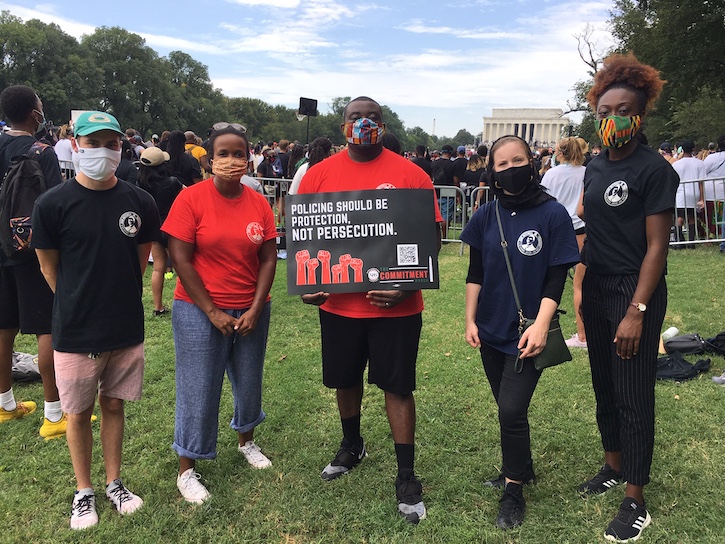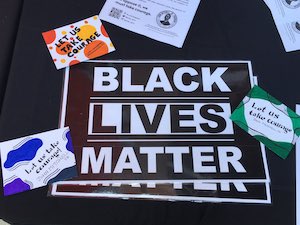What does social justice look like during a pandemic and a time of racial turmoil?
George Mason University’s John Mitchell Jr. Program for History, Justice and Race (JMJP) has been busy answering that question.
“We started off trying to figure out a way to promote racial healing,” said JMJP founder and Carter School professor Charles Chavis. “Our work is twofold: promoting narrative change and social transformation.”

A theme of their work has been having conversations about systemic racism. Ideally, these discussions would be held face-to-face, Chavis said, but that wasn’t possible due to COVID-19.
The virtual efforts have been surging with support.
In the summer, JMJP hosted “Mondays in June,” a virtual series with Andy Shallal, owner of the D.C. restaurant chain Busboys and Poets, to discuss race. The combined events had more than 15,000 views and led to a partnership with Washington, D.C., radio station WPFW.
“We were granted the opportunity to take our online Facebook show to the radio world,” Chavis said, adding that the first show will air on September 14. “We’re extremely excited.”

Founded in 2019, JMJP is named after John Mitchell Jr., an anti-lynching advocate, journalist, and Virginia politician who lived at the turn of the 20th century. With a focus on activism on the local level, all at Mason and in the community are invited to get involved.
“Anti-racism is not the problem of people of color, but our problem as a country,” Chavis said. “The program represents a space where everyone who wants to be about social justice and peace can do that, not only through attending events, but doing work around nearing change, curriculum development and public humanities.”
For students, participation means experiential learning.
“The program gives us a platform to call out injustice and point to places in history where those injustices originated,” said Ajanet Rountree, JMJP program coordinator and Carter School PhD student. “That allows us to question what we’re going to do about it, how we can change the trajectory of our lives as individuals, Americans, and global citizens.”
Beyond discussions, JMJP took their activism to the streets and marched in the 57th anniversary of the March on Washington held at the National Mall in August.

“We can’t say we are committed to conflict resolution if we are unwilling to be in the streets and be where the people are who are facing conflict,” Rountree said.
Jonathan Prinz, son of civil rights leader Rabbi Joachim Prinz, attended the original March on Washington with his father. He was also a guest speaker with Susannah Heschel, daughter of civil rights leader Rabbi Abraham Joshua Heschel, for JMJP’s fall inaugural event.
Prinz said he notices a difference in the movements of the 1960s versus today.
“There’s something very spontaneous about [the Black Lives Matter movement] and something leader-less about it,” Prinz said. “A lot of it has to do with a wonderful generation of young people who are engaged.”
Students in JMJP are one example of that.
“The heart of what we want to be is a beacon not only that promotes peace, but also provides students with opportunities to step outside the box and really connect what they’re doing to social justice,” Chavis said.
